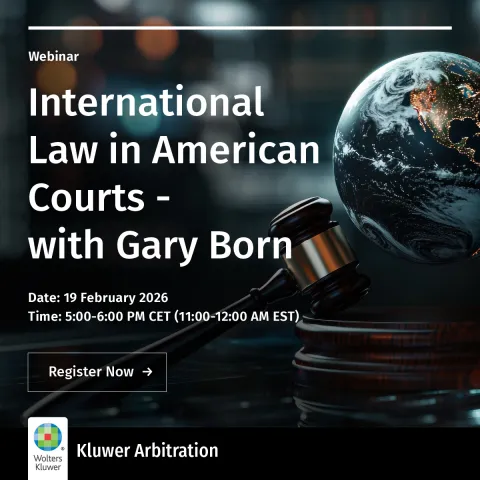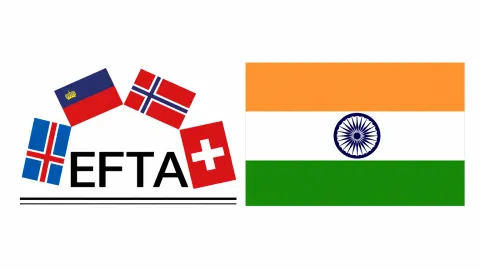Signing the Last Page of an Award is Now Sufficient in the UAE
October 29, 2025
For a very long time, certain UAE courts used to refuse the enforcement of awards that were signed only on the last page, while other courts allowed enforcement of such awards. The position on this question has now been settled through a recent decision issued by the Authority for the Unification of Federal and Local Judicial Principles (“Authority”). It is now enough to sign the last page of an award for it to be enforced in the UAE. This blog post explores this recent development.
The Requirement to Sign an Award
Article 41.3 of the Federal Arbitration Law No. 6 of 2018 (“Arbitration Law”) requires that an award be signed. Over the years, certain UAE courts required that the reasoning and dispositive sections, or even every page, be signed, despite no such requirement appearing in Article 41.3 or there being any prior arbitration legislation mandating this. This requirement was applied to domestic awards governed by the Arbitration Law and hence subject to the provision of Article 41.3. The signing requirement was also applied to foreign awards although such awards would not be subject to the Arbitration Law. This application was done on the basis that the signing requirement constituted a public policy rule. This allowed UAE courts to refuse enforcement under Article V of the Convention on the Recognition and Enforcement of Foreign Arbitral Awards (“New York Convention”). A detailed analysis of this requirement has previously been discussed on this blog here and here. Other courts, however, did not impose such a requirement, resulting in inconsistent rulings.
The Authority's Decision
To resolve this inconsistency, the matter was referred to the Authority, which is empowered, amongst other things, to unify conflicting decisions issued by the highest courts in the UAE, as per Article 15 of the Federal Law No. 10/2019 on Regulating the Judicial Relationship between the Federal and Local Judicial Authorities (“Federal Law No. 10/2019”).
The Authority issued its decision on 4 August 2025 (“Decision”) upon an application made by the Federal Public Prosecutor who has the power to make such applications under Article 16 of Federal Law No. 10/2019).
The Decision begins by examining a judgment rendered by the Dubai Court of Cassation (No. 403/2020 (Civil)), which refused enforcement because the award was signed by the arbitrator only on the last page. A previous blog post has analysed this decision in detail. The Authority referenced similar judgements from Dubai and Abu Dhabi courts. In contrast, the Ras Al Khaimah Court of Cassation (No. 5/2024 (Civil)) held that signing the last page of the award was sufficient. This approach was also applied in Abu Dhabi Court of Cassation Decision No. 834/2010 and Federal Supreme Court Decision No. 516/2016 (Commercial).
The Authority starts its reasoning by explaining that Article 129 of the Civil Procedures Law No. 42/2022 (“CPL”), which sets out how court judgments must be issued and signed, does not apply to awards, whether foreign or domestic. It then distinguishes the role of national courts in reviewing domestic versus foreign awards. Domestic awards are scrutinised by the courts to ascertain that they are in line with Article 41 of the Arbitration Law, which does require a signature by the arbitrator(s), but not on every page. Foreign awards are subject to scrutiny in line with the provisions of the New York Convention. In this regard, the Decision states that there should be no excessive formalities in arbitration and that the New York Convention, having been incorporated into national law, should apply even if its provisions contravene those of the CPL or the Arbitration Law.
The Authority then explains that as per Article V of the New York Convention, recognition and enforcement of the award may only be refused if a party proves one of the grounds listed therein. In particular, paragraph (d) covers procedural issues, including how the award was issued, and whether it complied with the parties’ agreement or the law of the country where the arbitration took place in case there is no agreement between the parties regarding the procedures.
The Authority further explained that requiring signatures on all pages of a foreign award cannot be considered a public policy rule in the UAE as the Arbitration Law does not impose such requirement. Furthermore, it is not possible to apply Article V(2) of the New York Convention, which allows refusal of recognition and enforcement of an award when it violates public policy because what is meant here is public policy in the context of international commercial arbitration. Additionally, the New York Convention does not require every page of an award to be signed, and there was no proof that the award in question, which was not signed on every page, violated public policy of the country of execution, the UAE.
On the basis of the above, the Authority decided that signing only the last page of an award is sufficient and exempted arbitrators from signing every page of an award. This new rule will now have to be followed by the various courts in the country as they are bound by the decisions of the Authority in line with Article 18 of the Federal Law No. 10/2019.
Analysis
In addition to its significance in unifying judicial practice across UAE courts and eliminating an unnecessary requirement, the Decision introduces a couple of points that merit closer examination.
Article 222.2 of the CPL sets out a number of preconditions for the enforcement of foreign awards, one of which is compliance with public policy. Amending this provision to include the word “international” would prompt UAE courts to take into consideration notions of international public policy rather than domestic public policy. In jurisdictions such as France, the enforcement of foreign awards is linked to international public policy (see Article 1514 of the French Civil Procedure Code). For a further analysis of the enforcement conditions under UAE law, you may refer to this blog post. The Decision further explains that the concept of international public policy should be interpreted narrowly. A violation of public policy in the country of execution should only be found if it is “jarring, effective and palpable,” according to the UAE courts in the Decision. Otherwise, the underlying purpose of the New York Convention – to facilitate the recognition and enforcement of arbitration agreements and awards – would not be reached.
Another noteworthy point is the statement that the New York Convention applies even if its provisions conflict with UAE laws. Contrary to certain countries,2 the UAE has not adopted the concept of supremacy of international conventions over national laws as a general rule. The UAE Constitution (1971), specifically Article 47, sets out the process for treaty ratification but does not establish the supremacy of international treaties over national legislation.
However, Article 225 of the CPL reflects a more treaty-friendly approach in the chapter relating to the enforcement of foreign judgments (which also applies to enforcement of foreign awards). It states that the rules set out in that chapter shall not affect the provisions of international treaties to which the UAE is a party. Accordingly, if there is a conflict between an international convention and the UAE law regarding enforcement of foreign judgments and awards, the provisions of the international convention take precedence.
Concluding Remarks
Over the past decade, the UAE has been consistently advancing in the arbitration field through amendments to arbitration-related legislation or court decisions. Signing every page of an award was one of the very few formalistic requirements inherited from past practice. But this cumbersome requirement is now a thing of the past. Arbitrators are now relieved from the daunting task of signing hundreds and sometimes thousands of pages, and party counsel can now advise clients with certainty that signing every page of an award is no longer required.
- 1
To be noted here that Article V of the New York Convention, which requires compliance with public policy as a precondition for enforcement, does not mention “international” public policy. It has been accepted by the international arbitration community that reference to public policy here means international public policy. See Albert Jan van den Berg, New York Convention of 1958 Annotated List of Topics, p. 53 (2013), https://www.newyorkconvention.org/media/uploads/pdf/9/7/97_list-of-topics-descriptions-29-sep-2013.pdf.
- 2
For example, Article 55 of the French Constitution (1958) provides for the supremacy of international conventions over French legislation. See French Constitution (1958), Art. 55, https://www.legifrance.gouv.fr/loda/article_lc/LEGIARTI000006527541.
You may also like











